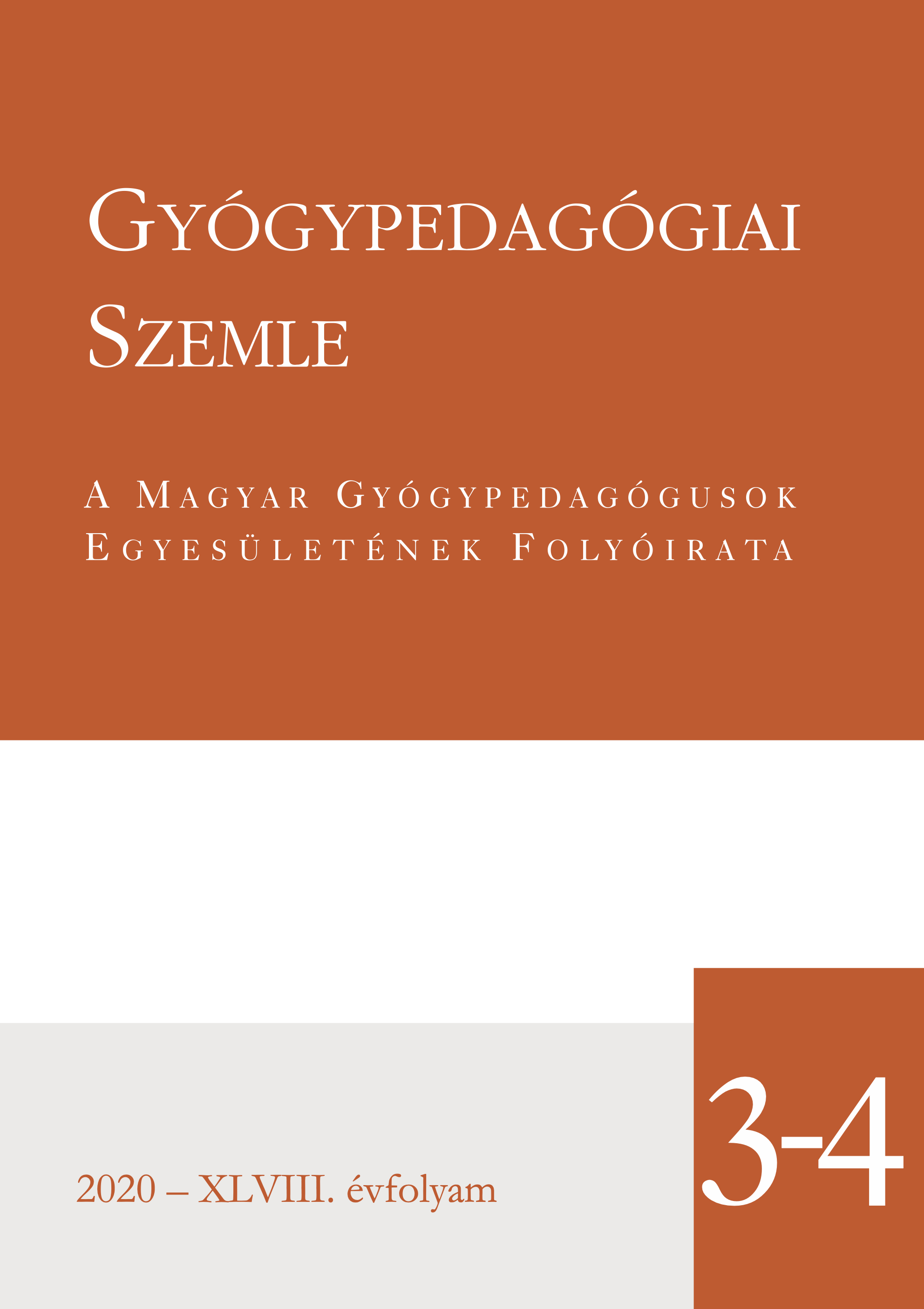Education and employment of adults with autism. Access to services and parental satisfaction
Keywords:
autism spectrum, autism-specific service, adults with autism, parental judgementAbstract
Background and objectives. Data from the international literature show that there are considerably less services available for adults with autism than in childhood. Their rate of adequately individualised employment lies significantly behind that of neurotypical adults, as well as of other disability groups. Data on their adult education and on their level of completed education are divergent. Th e main aim of our present study is to explore the educational and employment characteristics of adults with autism in Hungary, and their relationships to the socio-economic status and the behavioural profile of these individuals.
Method. Our study was based on an adult sub-sample from the quantitative survey dataset collected by the Hungarian Academy of Sciences (HAS) – ELTE University ’Autism in Education’ Research Group (MASZK), in 2017/2018. In the foci of the on-line survey there were parental quality of life and psychological well-being, as well as such potentially related factors as the symptom severity of the child with autism, their challenging behaviours, their strengths, and the institutional services available for them (among others). We analysed parental responses on a total of 85 adults with autism (66 males, 19 females; mean age 26.17 years) and 80 neurotypi cal adults (47 males, 33 females; mean age 25.75 years). We analysed the parental responses on educational and employment characteristics, on autism-related symptoms (as measured by the Social Communication Questionnaire), and on challenging behaviours.
Results. (1) The 51,8% of the adults with autism in our sample are formally inactive, are not in education nor employment. 23 of them (27%) receives autism-specific support, 62 of them do not receive any (73%). (2) The educational/employment status of the adults with autism shows significant positive relationship with their overall level of functioning (r=0.243; p=0.034), and with the economic conditions of the family. (3) We did not find any significant relationship between the educational/employment status , the maladaptive behaviours, the level of socio-communicative skills, or the size of the settlement of residence. (4) There is a significant negative relationship between parents’ complacence with the services received by their child and the autism-related symptoms present at him/her (r=-0.521; p<0.001); and the amount of his/her challenging behaviours (r=-0.521; p<0.001). (5) Ensuring their children’s current form of employment required significantly bigger efforts from parents of adults with autism than from parents of neurotypical adults (Z=-3,510; p<0,001).
Conclusions. Our results show an overall agreement with those from previous studies. The much higher ratio of those adults with autism who are neither in education nor in employment is, however, an important divergence from internationally published data. It is urging, therefore, to map more thoroughly the system of services in Hungary, as well as setting up a well-coordinated and accessible support system, which works in an autism-specific and eclectic approach.
Keywords: autism spectrum, autism-specific service, adults with autism, parental judgement

